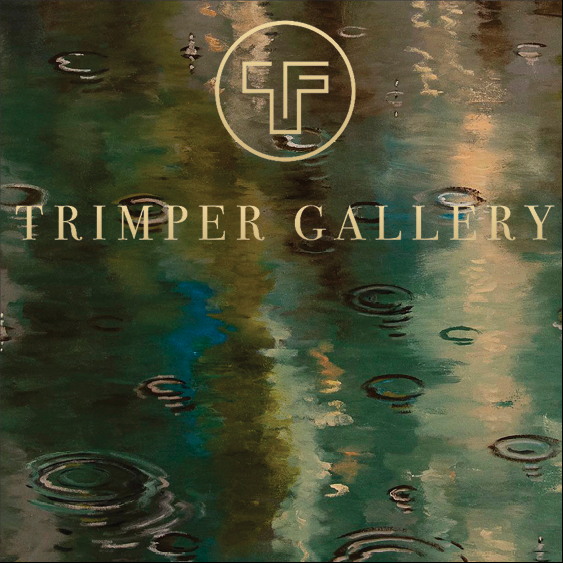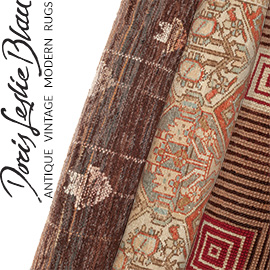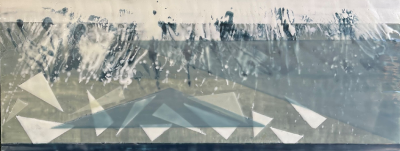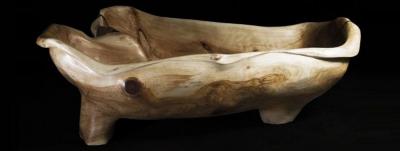Treasures from the Road: Selections from Antiques Roadshow
 |
If there is a downside to my otherwise terrific job as executive producer of PBS’s Antiques Roadshow, it’s that I want things—expensive things—that I never wanted before. My wish list is enormous because I’ve seen and touched the best. I even have my own Roadshow fantasy of finding a superb marine painting by James Edward Buttersworth and buying it for less than $100 because it was hiding under a paint-by-numbers board.
 | |
Appraiser Kathleen Harwood (right) with a guest and her Porfirio Salinas painting. Photography by Jeffrey Dunn. |
As long as I’m in a Roadshow fantasy bubble, I’m going to imagine what would happen if I could shop from among our guests’ treasures. The aforementioned marine painting would be high on my shopping list—either a Buttersworth or an Antonio Jacobsen would do. I’d be tempted to acquire a nice little folk art painting by Grandma Moses, and I’m salivating for a Rockwell Kent, just like the one we discovered in Pittsburgh in 2011.
However, it was bluebonnets that caught my eye on last summer’s production tour. Bluebonnet flowers are the pride of Texas, and ever since seeing my first Robert Wood painting showcasing the state flower, I’ve had a hankering to see one on my wall. So I would buy the bluebonnet oil by Porfirio Salinas we found in Corpus Christi. We learned from Roadshow appraiser Kathleen Harwood that as a young man, Salinas did not have any formal training, but studied under Wood before coming into his own fame in the 1940s and ‘50s. Born in 1910 he was too young to compete in the Texas Wildflower Competitive Exhibitions of the 1920s, but he made up for lost time. By the time our guest’s grandparents bought the painting from a San Antonio gallery in the 1940s, Salinas was a prolific full-time painter. I’m guessing they paid quite a bit less than Harwood’s estimate of current value, which she puts at $10,000 to $15,000 at auction.
I’m not the only one with a deep appreciation for Salinas’ work: he was President Lyndon B. Johnson’s favorite artist. LBJ took his collection of Salinas paintings with him when he moved into the White House, and now in my Roadshow fantasy world, he’s hanging in my house too.
 |
 | |
Guest (left) with his family desk and appraiser Andrew Brunk. Photography by Jeffrey Dunn. |
I’m staying in Texas for my second item but heading north to Dallas. While deep in the heart of the Lone Star state, in walked a man with a New England desk that made me truly envious my ancestors didn’t have the foresight to begin putting things aside in the 1600s. Furniture expert Andrew Brunk gave the child-size, American-made, circa-1760 desk an auction estimate of $25,000 to $35,000. Brunk was gaga over the object, saying, “It’s what we in the field call ‘in the black.’ And that means it has not been touched. It’s absolutely original finish.”
But it’s what was inside the desk that made it über special. For three hundred or so years, the owner’s family was tucking away precious objects: daguerreotypes, surveys, deeds, gold nuggets, Confederate money, a tooth puller, 1812 handkerchiefs, pocket watches, and much more.
 |
How many of us have this kind of family history in our homes? As someone who travels the country peeking in tens of thousands of attics and basements I know the answer: not many. In 2008, when we taped the show, the auction estimate on the desk plus its contents was $100,000. It would be worth every penny to me.
This article will be online at www.pbs.org/antiques and at www.afamag.com and www.afanews.com. Visit the latter for an exclusive online-only article where Marsha Bemko discusses two more fantasy objects (Hint: jewelry and military).
Marsha Bemko is executive producer of PBS’s Antiques Roadshow and of PBS’s new series Market Warriors. Bemko’s television career spans thirty years, working with WGBH on a variety of programs. She is a sought-after lecturer and writes for Antiques Roadshow Insider.
This article was originally published in the 13th Anniversary/Spring 2013 issue of Antiques & Fine Art magazine, a fully digitized version of which is available at www.afamag.com. AFA is affiliated with Incollect.com.
 |



























